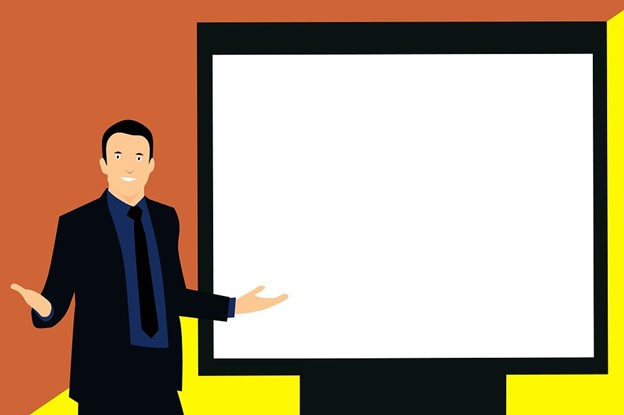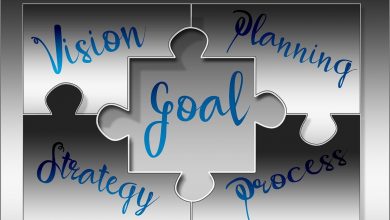How to Make a Good Presentation and Remain Confident
Hacks for a presentation

What Makes a Good Presentation?
It takes practice to give a successful presentation, am I right? Myself, as a founder of the Agencia SEO Mallorca I manage in Majorca, and all the meetings and presentations I have to do with my clients almost every day, I’ve learned some of the best insights and secrets to make the best presentation ever.
We’re here today because not everyone is born with the ability to speak in public, or just because they didn’t take the time to practice this powerful skill enough time!
So, in this post, I will provide you with some of the greatest ideas for doing amazing and memorable presentations that will impress anyone. By the way, just so you know, all the finest public speakers utilize these amazing strategies.
And damn, if you’re wondering if they had to practice these skills… the answer is a YES, even they had to practice getting excellent at it!
I got you covered whether you need to make a presentation for work, whether it’s a pitch for a new project or product concept, a quarterly marketing report, a product launch, or as an industry expert at a summit.
Let’s now just start with the powerful ideas!
1. Practice What You’re Going to Say
You must prepare before you can give a decent presentation, that’s obvious and even you’ve thought about that, am I right?
This section consists of two steps:
- Rehearsing what you’ll say
- Psychologically and emotionally prepare yourself.
These two suggestions go hand in hand, but we’ll go through each one separately so you understand how powerful these beautiful ideas are.
It’s important to note that we didn’t state “memorize your presentation.”
Memorizing a speech and rehearsing delivering a narrative are two damn very different things!
The difference is that a memorized speech might come across as robotic, whereas trained storytelling appears natural and full of energy.
Before you begin rehearsing make sure you have at least a rough idea of your slides and remember the power that rehearsing what you’ll say and preparing psychologically and emotionally yourself has in front of others.
- Recommended read: What is Nonverbal communication
2. Mentally, Emotionally, and Technically Prepared
It’s very probable that you’ve previously had to deliver a presentation, and most likely in school, but…
Let’s face it, a classroom and a TED stage aren’t exactly the same, so is an online summit through Zoom, which, as you may know, is becoming increasingly popular!
Let’s make things clear now… this isn’t just any presentation; we’re talking about high-stakes, high-quality presentations.
Preparing mentally and emotionally for a weekly sales report meeting is not as essential as preparing mentally and emotionally for a meeting that will be broadcast to thousands of people and recorded for posterity.
In addition to that, glossophobia, or the fear of public speaking, affects a large number of people.
Some people suffer from anxiety or social anxiety, and being around so many people is tough for them.
Before their first few speeches, many successful speakers used to be terrified and every time some of them are still there but the difference is that they’ve learnt to control and embrace their terror.
Fear and nervousness fade away as soon as they step onto the stage, and the rehearsing and practise take over both of them, by mentioning this over and oever again I just want you to understand how important is to be prepared.
- Recommended read: How to control your emotions
3. Body Language
Your body language will be the first thing people notice, the way you hold yourself reveals a lot about how self-assured you are at any one time.
In fact, if people see you moving all the time, over touching the paper or even grabbing a bit of water within the minute of starting a presentation, that could give your audience a bad feeling about what you’re going to say.
You’re as prepared as you’ll ever be if you are emotionally and psychologically prepared before your turn.
A good strategy to use is to practice meditation 1 hour before starting the presentation, in that way you’ll feel more in control of yourself and more aware of your movements preventing yourself from overreacting.
4. Strong Start
Starting a presentation with a joke, for example, can help the audience connect with you and feel more at ease.
Allowing them to laugh for a few moments will cleanse the air in the room, making it easier to proceed.
Other methods of an opening or a great start include:
- Making a statement.
- Arouse curiosity
- Surprise the audience
- Submit a Question
- Tell a Tale
5. Use Props
Do you want to know how to give a great presentation with props?… well that’s great because it indicates you’re thinking beyond the box!
When it comes to preparing for a presentation, many people overlook the use of props and props may assist not only in conveying the information but also in providing emotional support to the speaker!
One important thing I want to point out, make sure it’s clearly a PROP rather than an emotional crutch.
e.g. A prop can be anything from a book to a washing machine to a preserved human brain.
The prop, of course, must be appropriate for your presentation and theme and not only that, but you’ll need to train with it as well.
As you speak and switch slides, it’s critical that you feel at ease with your prop or props.
6. Finish With Confidence
The conclusion of the presentation or final point is equally essential as the start and It’s up to you to complete the circle so you should make sure to refresh everyone about the topic you’re talking about and remind them of your main point meanwhile building self-confidence and without nervousness.
Knowing how to format a story, essay, or article is similar to knowing how to deliver a successful presentation because both, the beginning and the conclusion must be related and meaningful to one another.
The conclusion of your presentation is a separate segment.
Even if you follow my advice, the whole closing remark must be a summary of everything you discussed throughout the presentation, I want you to remember that.
The final statement you say will be remembered by your listeners and until the next speaker enters the stage, that is.
If someone in your audience scribbled down your final line, you’ve nailed it!
Make sure to leave a comment or to share your thoughts about the post by leaving a comment below!
Check My Private Business Library: Earn More By Working Smarter Books
Read More About Business Here > Business Development Blog
…
Would You Like To Become Financially Independent or To Get Back On The Right Track Of Your Life And Claim Your Freedom?
Below Are The Safest And The Most Efficient Tools!
- Master Your Profession, Your Passion, Or Something New
- Start Your Own Business For Free
- Become Debt Free (Free consultation)
- Make An Income By Teaching And Traveling The World
Other Important Resources
- Book: Improve Your Life Today Book
- Instagram: Personal / Eagle Beagle Spirit
- Visit Our Shop: Eagle Beagle Spirit Shop or Become An Ambassador
Always fighting for your rights and your daily improvement,
Juan Plamen




